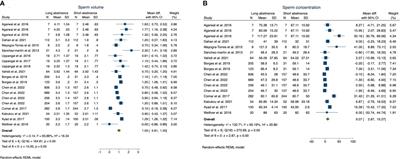EDITORIAL
Published on 24 Feb 2025
Editorial: Insights in DNA fragmentation
doi 10.3389/fendo.2025.1570774
- 177 views
4,065
Total downloads
31k
Total views and downloads
EDITORIAL
Published on 24 Feb 2025
REVIEW
Published on 17 May 2024

ORIGINAL RESEARCH
Published on 08 Apr 2024

REVIEW
Published on 05 Oct 2023

ORIGINAL RESEARCH
Published on 07 Sep 2023

ORIGINAL RESEARCH
Published on 09 Mar 2023
